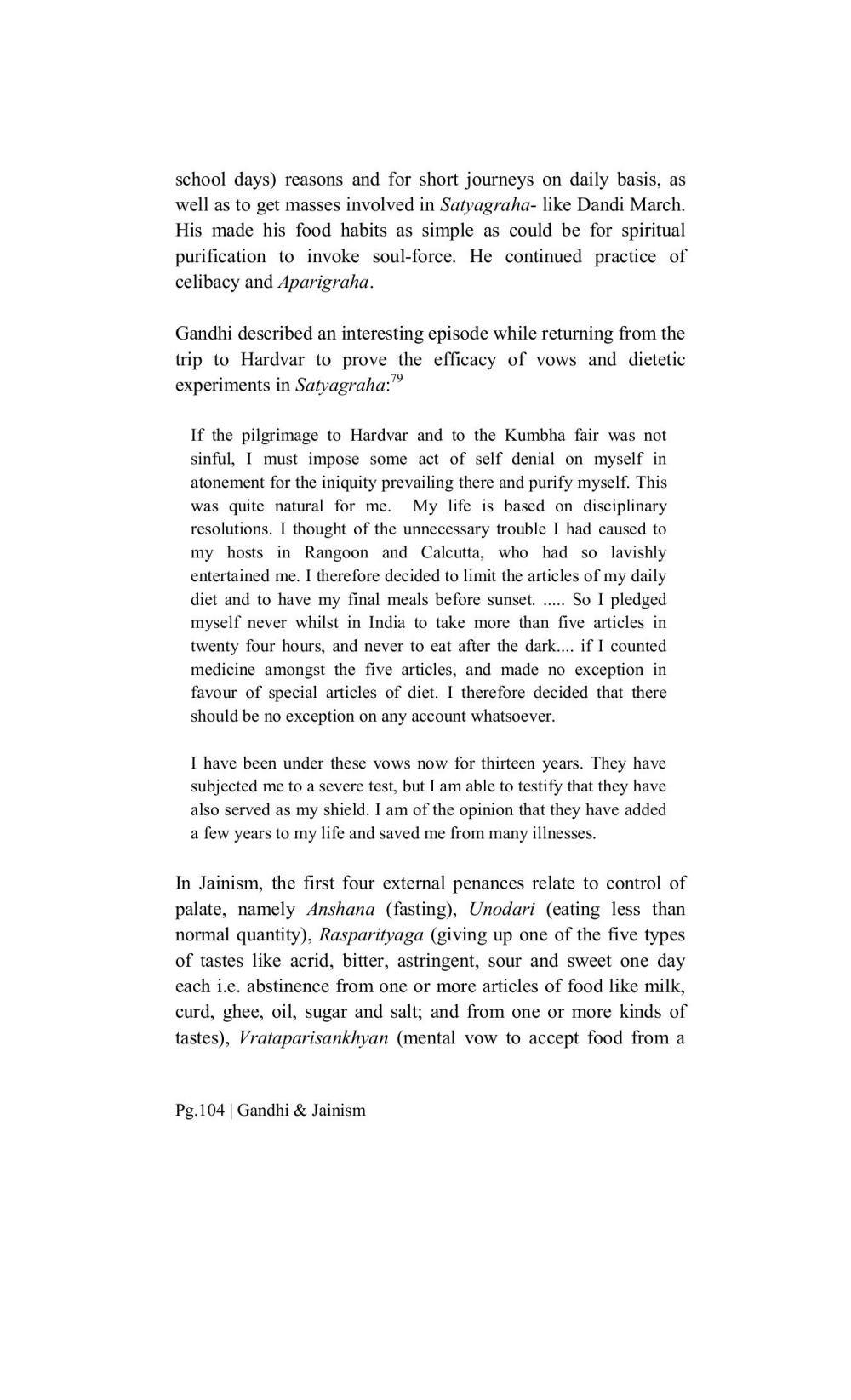________________
school days) reasons and for short journeys on daily basis, as well as to get masses involved in Satyagraha- like Dandi March. His made his food habits as simple as could be for spiritual purification to invoke soul-force. He continued practice of celibacy and Aparigraha.
Gandhi described an interesting episode while returning from the trip to Hardvar to prove the efficacy of vows and dietetic experiments in Satyagraha:
If the pilgrimage to Hardvar and to the Kumbha fair was not sinful, I must impose some act of self denial on myself in atonement for the iniquity prevailing there and purify myself. This was quite natural for me. My life is based on disciplinary resolutions. I thought of the unnecessary trouble I had caused to my hosts in Rangoon and Calcutta, who had so lavishly entertained me. I therefore decided to limit the articles of my daily diet and to have my final meals before sunset...... So I pledged myself never whilst in India to take more than five articles in twenty four hours, and never to eat after the dark.... if I counted medicine amongst the five articles, and made no exception in favour of special articles of diet. I therefore decided that there should be no exception on any account whatsoever.
I have been under these vows now for thirteen years. They have subjected me to a severe test, but I am able to testify that they have also served as my shield. I am of the opinion that they have added a few years to my life and saved me from many illnesses.
In Jainism, the first four external penances relate to control of palate, namely Anshana (fasting), Unodari (eating less than normal quantity), Rasparityaga (giving up one of the five types of tastes like acrid, bitter, astringent, sour and sweet one day each i.e. abstinence from one or more articles of food like milk, curd, ghee, oil, sugar and salt; and from one or more kinds of tastes), Vrataparisankhyan (mental vow to accept food from a
Pg.104 | Gandhi & Jainism




